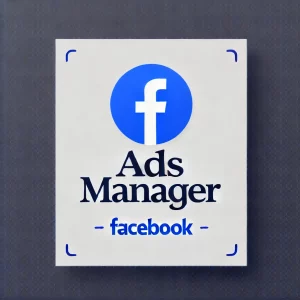
Detailed study of artificial intelligence’s impact on the internet advertising market
Artificial Intelligence (AI) is actively reshaping the internet advertising market, fundamentally transforming methods of targeting, bid management, content moderation, and blocking. Thanks to AI, advertisers can run more precise and personalized advertising campaigns tailored to each user’s needs. Major market players like Google and Meta leverage digital intelligence to optimize advertising processes and enhance user experiences on their platforms.
Behavior analytics: can companies predict customer desires with AI?
The implementation of AI has significantly changed the process of bid allocation in online advertising. Platforms like Google Ads and Meta Ads actively use machine learning to analyze user behavior and predict the success of advertising campaigns. This provides:
- optimization of cost-per-click and impressions — AI allows for automatic determination of optimal bids for each ad, helping to reduce costs and increase Return on Investment (ROI);
- real-time bid adjustment — through algorithms, bids automatically adjust to different parameters, such as time of day, audience location, and other factors for maximum impact.
AI not only changes the technical approach to bidding but also enhances the overall effectiveness of advertising strategies. With automation that accounts for user behavior details, advertisers gain new opportunities to achieve target metrics with lower costs. This approach enables businesses to be flexible, respond faster to changes, and significantly improve engagement quality with the audience.
Moderation and blocking of ads using AI
Artificial intelligence plays a key role in moderating and filtering advertising content, ensuring its compliance with platform rules. These systems enable:
- Text, image, and video analysis — digital intelligence checks ad content, blocking prohibited or unwanted material.
- Detection of fraudulent and harmful content — platforms use detection algorithms to identify suspicious patterns, blocking ads that may pose threats to users.
Companies using AI in online advertising:
- Google Ads: uses AI for ad personalization and accurate conversion prediction. Google Smart Bidding automatically adjusts bids for the best results.
- Meta (Facebook and Instagram): applies AI to create offerings tailored to user preferences, optimizing bids while considering audience interests.
- Amazon Ads: uses AI for in-depth analysis of user behavior, enhancing targeting and increasing customer engagement.
Applying AI in online advertising makes it safer, more effective, and more personalized. Intelligent algorithms enable companies not only to automate complex processes, but also to create an environment where advertising becomes maximally relevant and useful for each user. AI systems ensure quick and accurate moderation, allowing advertisers to focus on strategic campaign development.
How Google uses AI in advertising
Google actively applies AI for bid automation, personalization, and ad moderation. Specifically, in Google Ads, this includes:
- Bid automation — Google Smart Bidding helps advertisers optimize spending by automatically selecting the best bids based on user data.
- Moderation and protection — AI helps filter out fake and harmful ads, ensuring user safety.
With these innovations, Google significantly increases the efficiency of advertising campaigns by optimizing both spending and providing a safe environment for users.
How Meta uses AI in advertising
Meta actively employs AI for campaign personalization and bid management. Through deep analysis of user behavior data, algorithms predict user interests, allowing Meta to:
- Adjust bids in real-time — AI automatically adapts bids for maximum targeting effectiveness.
- Moderate content — effectively blocks prohibited material, ensuring a safe platform environment.
As these technologies evolve, AI’s role in advertising will only grow, opening new horizons for innovation and process optimization.
How AI is transforming online advertising
With its ability to analyze massive data volumes, advertisers can accurately tailor their campaigns based on the interests and behavior of each user. Additionally, automated content moderation systems help detect and block ads containing prohibited or harmful material, ensuring a safe user environment.
For instance, companies using AI in advertising can automatically adjust bids on Google Ads or Meta, based on which content draws the most attention from their target audience in real-time. Ads on these platforms can be personalized for individual users, significantly increasing the chances of engagement and conversion.
As a result, AI not only makes advertising more accessible and efficient, but also protects users from unreliable or unwanted content. This approach allows advertisers to interact effectively with potential customers, reducing risks and enhancing loyalty. In the future, as data volumes continue to grow, AI’s role in advertising will only expand, opening new horizons for business growth and enhancing the user experience.
Technical innovations for reducing AI energy consumption in digital marketing
Using AI for online advertising involves numerous complex algorithms that perform functions like automatic bid optimization, ad targeting, user behavior analysis, and content moderation. These processes require substantial computational power, leading to high energy consumption.
According to research, large AI models can consume tens of thousands of megawatt-hours (MWh) of energy during training, with energy demands comparable to those of a small city. For instance, training the GPT-3 model, one of the largest language AI models, required over 1,287 MWh of energy, equivalent to the annual energy consumption of 1,200 U.S. households.
This energy consumption becomes even more relevant in online advertising, where computational resources are used not only for one-time model training but also for continuous real-time data processing.
Reasons for high AI energy consumption in online advertising:
- processing large data volumes;
- use of complex machine learning algorithms;
- scalability and automation.
High energy consumption combined with reliance on traditional energy sources like coal or natural gas can lead to increased greenhouse gas emissions. This threatens the environmental goals of many countries and companies aiming to reduce their carbon footprint.
Solutions for reducing AI energy consumption in online advertising:
- optimization of machine learning models — using compact models to achieve similar results with lower energy costs;
- use of renewable energy sources — transition to «green» energy for data centers;
- energy-efficient technologies — implementation of new processors and optimization of computing processes to reduce energy consumption.
Implementing these solutions allows for more efficient energy use in online advertising, reducing environmental impact and energy costs.
Hardware for AI in advertising
Companies using AI in advertising require powerful servers and specialized processors. For this, they utilize:
- graphics processing units (GPUs) from NVIDIA;
- tensor processing units (TPUs) from Google;
- specialized chips from Intel and AMD.
Such systems require high-performance servers and modern cooling systems to ensure stable operation.
Artificial intelligence continues to influence online advertising, making it more precise, secure, and efficient. However, its use also demands a responsible approach to energy consumption and ethical aspects. With ongoing innovations, this field gains new growth perspectives, making intelligent digital machines one of the key future technologies in advertising.











